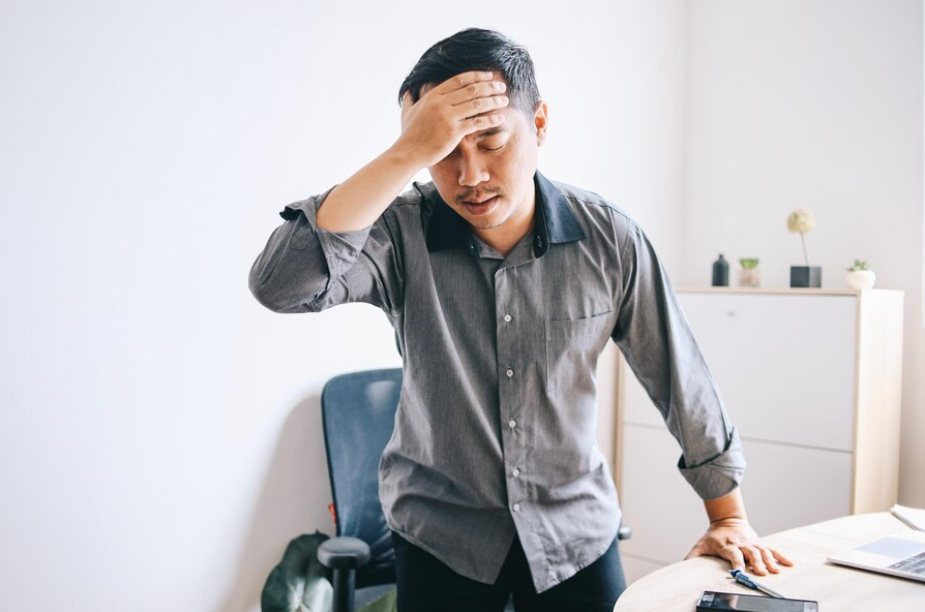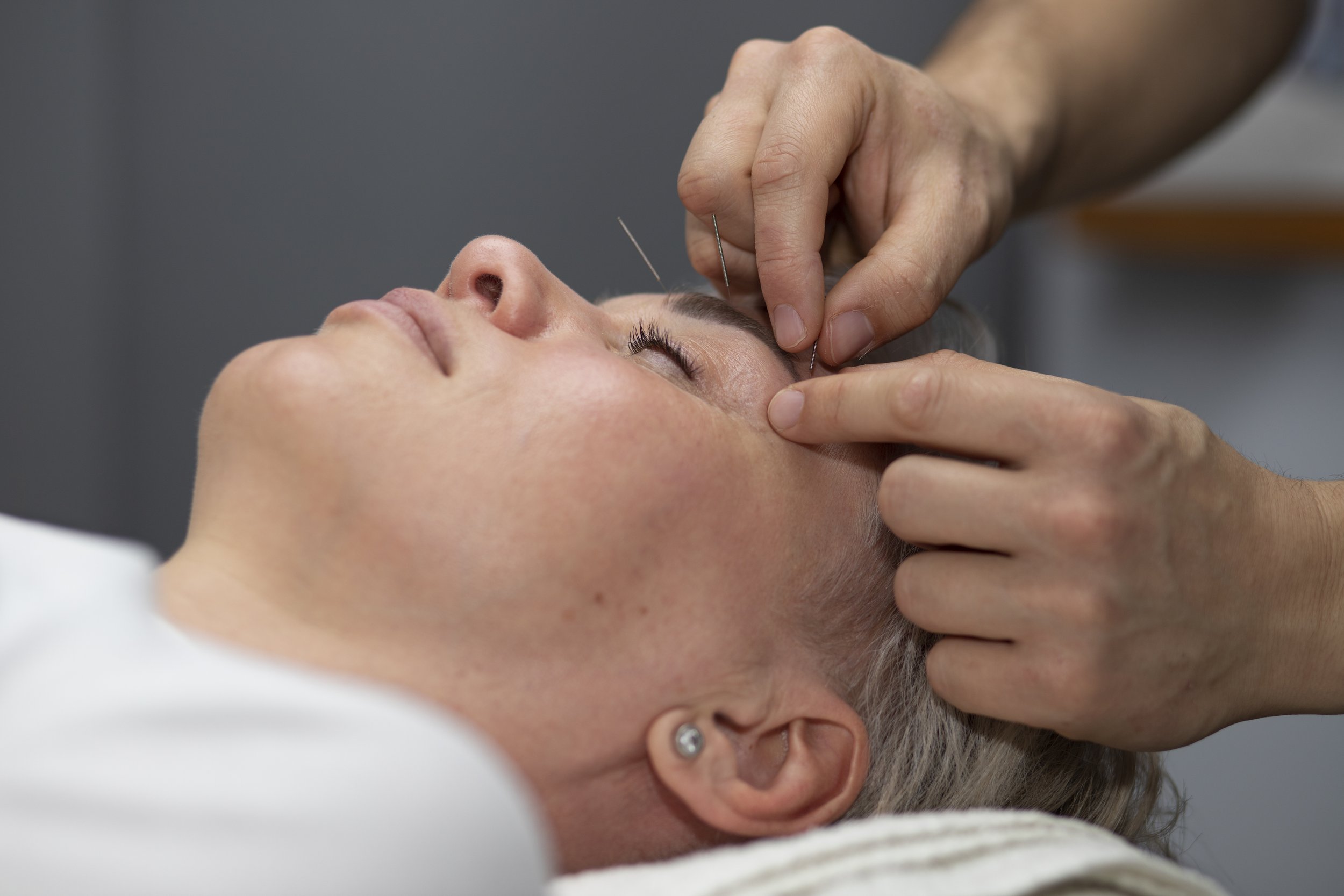Can Acupuncture Help Vertigo?
Introduction
Vertigo, a disorienting sensation of spinning or dizziness, can disrupt daily life. Western medicine offers various treatments, while Eastern Medicine, notably acupuncture, provides alternative approaches for managing vertigo symptoms.
What is Vertigo?
Vertigo isn't merely feeling dizzy; it's a specific form of dizziness characterized by a spinning sensation, often triggered by issues in the inner ear or nervous system. It can lead to nausea, imbalance, and difficulty focusing.
Understanding Vertigo Symptoms
Symptoms include spinning sensations (especially when moving the head), imbalance, nausea, vomiting, sweating, and even difficulty standing or walking.
Western medicine treatments
Medications:
- Antihistamines: These can help reduce the intensity of vertigo episodes by affecting the inner ear's fluid balance.
- Anti-nausea drugs: Medications like meclizine or dimenhydrinate can alleviate nausea and vomiting associated with vertigo.
- Benzodiazepines: Drugs like diazepam may be prescribed to relieve symptoms by calming the central nervous system.
Vestibular Rehabilitation Therapy:
- Balance exercises: A specialized form of physical therapy designed to improve balance and reduce dizziness by enhancing the body's natural vestibular compensation mechanism.
Canalith Repositioning Maneuvers:
- Techniques like the Epley maneuver or Semont maneuver are used to reposition calcium crystals in the inner ear, specifically in cases of benign paroxysmal positional vertigo (BPPV).
Surgery:
- In some severe cases, surgery might be recommended to alleviate vertigo symptoms, particularly when other treatments are ineffective or when vertigo is due to structural issues like Meniere's disease.
Lifestyle Modifications:
- Dietary changes: Reducing salt intake can help manage conditions like Meniere's disease, which is characterized by vertigo episodes.
- Stress management: Stress can exacerbate vertigo, so stress-reduction techniques or counseling might be recommended.
How Eastern Medicine Treatments:
Acupuncture's effectiveness in treating vertigo lies in its impact on the body's neurological and vestibular systems. The holistic principles of acupuncture aim to restore balance and harmony within these intricate systems.
The Science Behind Acupuncture's Efficacy
Acupuncture stimulates specific acupoints, triggering a cascade of physiological responses. Research indicates that these stimuli can regulate neurotransmitters, such as serotonin and dopamine, known for their role in mood regulation and vestibular function. By modulating these neurotransmitters, acupuncture may mitigate vertigo symptoms like dizziness and nausea.
Studies also suggest that acupuncture affects blood flow and oxygenation levels in the inner ear and brain regions responsible for balance and spatial orientation. Improved circulation and oxygen supply to these areas may enhance their function, reducing vertigo episodes.
Furthermore, acupuncture's impact on the nervous system appears to influence the vestibular nuclei and pathways, aiding in the transmission of signals related to balance and orientation. This modulation may contribute to better signal processing and coordination, diminishing the severity and frequency of vertigo.
Acupuncture's Holistic Approach to Vertigo
Unlike symptomatic treatments, acupuncture doesn't merely address the immediate symptoms of vertigo. Instead, it targets the underlying imbalances that contribute to vertigo's onset, offering a comprehensive approach to managing this condition.
By focusing on restoring the body's natural equilibrium and enhancing neurological function, acupuncture seeks to rebalance the disrupted systems, potentially providing long-term relief from vertigo symptoms.
Scientific Evidence of Acupuncture to Manage Vertigo
Research suggests acupuncture's effectiveness in managing vertigo. Studies show that acupuncture can modulate neurotransmitters, improve blood flow, and regulate the vestibular system, offering relief from vertigo symptoms.
Benefits of Acupuncture for Vertigo Symptoms
Acupuncture's holistic approach addresses the root cause of vertigo symptoms by restoring balance and enhancing nervous system function. It may reduce the frequency and intensity of vertigo episodes, improving overall quality of life.
Support During Vertigo Treatments
In holistic vertigo management, acupuncture complements conventional therapies. It offers a non-invasive, drug-free option, potentially reducing the need for medications with side effects.
Considerations and Precautions When Receiving Acupuncture
While generally safe, it's crucial to seek acupuncture from qualified practitioners. Discussing vertigo symptoms and medical history ensures a tailored approach for effective treatment.
Conclusion
Acupuncture stands as a promising avenue for effectively managing vertigo symptoms. Its capacity to target underlying imbalances and regulate the body's responses aligns seamlessly with holistic healing principles. As ongoing research progressively validates acupuncture's efficacy, its integration alongside traditional vertigo treatments embodies a comprehensive strategy in alleviating symptoms and fostering overall well-being.
The multifaceted impact of acupuncture on neurological pathways, neurotransmitter regulation, and circulation provides a scientifically plausible foundation for its effectiveness in managing vertigo. This integration of an ancient practice with contemporary treatments paves the way for a more holistic approach, aiming not only to alleviate vertigo symptoms but also to elevate general health. As research continues to uncover the intricacies of acupuncture's effects, its evolving role in managing vertigo holds promise for further refinement and validation.




